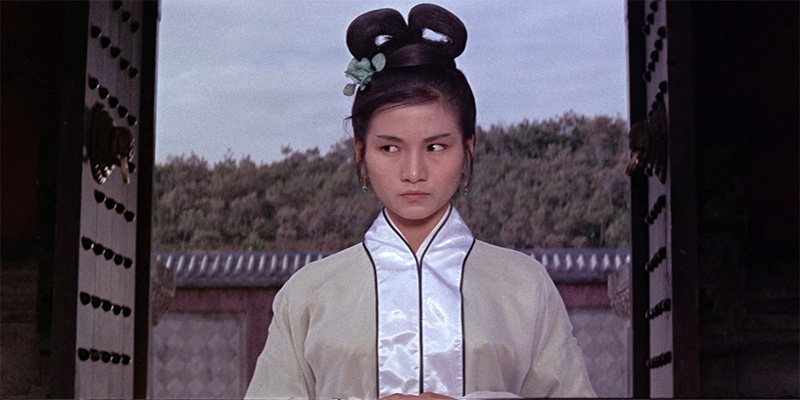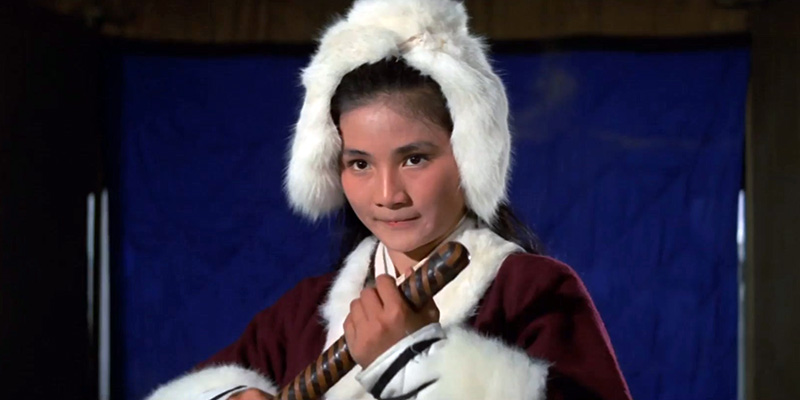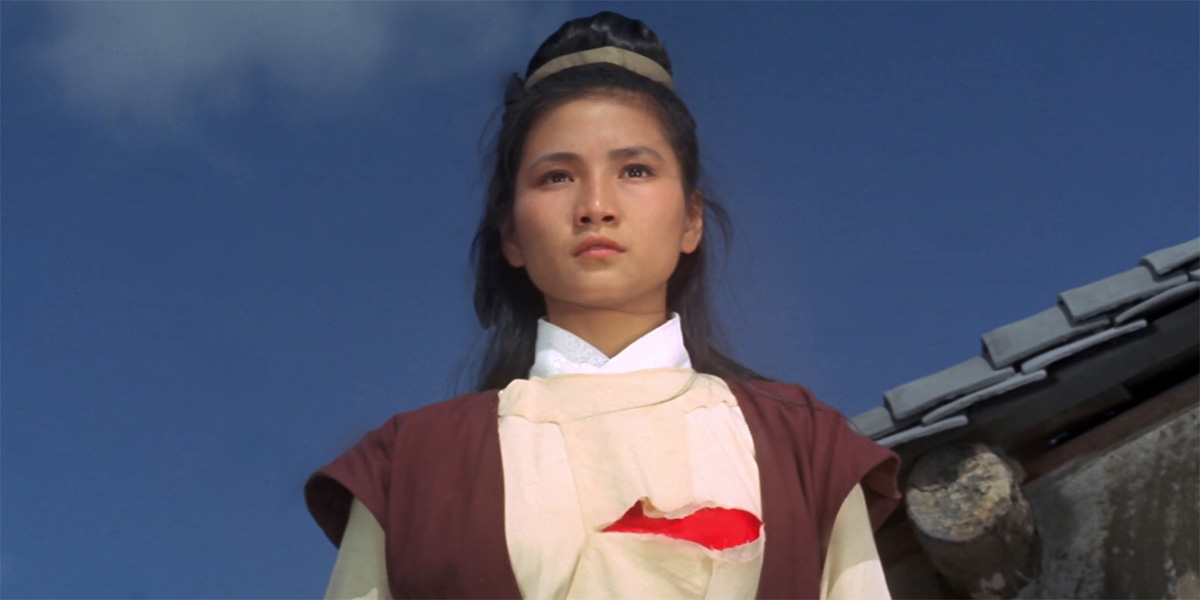On July 17th, a Shaw Brothers great, a legend of Hong Kong cinema, died in San Francisco. Cheng Pei-Pei (‘The Girl with the Thunderbolt Kick’ according to the US title of 1968 classic ‘Golden Swallow’) was one of the first memorable action heroines, not just in Asian cinema but perhaps worldwide. Her cute-as-a-button look was perfect for her breakout role in 1964 Taiwanese romantic drama ‘Lovers’ Rock’, but it was a role two years later that would bring her to greater attention. King Hu’s Shaw Brothers masterpiece, ‘Come Drink With Me’ gave Cheng one of her most enduring roles – young avenger Golden Swallow. Playing against the image that ‘Lovers’ Rock’ had created for her, Cheng was a bold choice for the role and yet her young, vulnerable look never detracts from her strength in the part. It’s not long before you definitely believe that she can repel hordes of attackers and, like so many female stars given action roles thereafter, it’s a physically demanding performance. And her eventual partnership with Yueh Hua as ‘Drunken Cat’ (a character who really should have been in more films) is a joy.
Action cinema would never quite be the same after Cheng Pei-Pei had torn the screen up and while Drunken Cat didn’t return, Golden Swallow did in a sequel bearing her name. Again, Cheng Pei-Pei is that remarkable mixture of undeniably adorable and yet often ferocious, and that she pulls this off so well is testament to her performance. ‘Golden Swallow’ never reaches the heights of ‘Come Drink With Me’, but gave Cheng the chance to be the object of affection for two characters while being ruthless at all times. It’s almost as if ‘Lovers’ Rock’ and ‘Come Drink With Me’ had been combined.

Come Drink With Me (1966)
Following her role as ‘Golden Swallow’, Cheng Pei-Pei would appear in numerous other swordplay films for Shaw Brothers while blending in softer fare like the 1967 musical ‘Hong Kong Nocturne’. The run of swordplay films was unparalleled in its sustained quality: ‘Jade Raksha’, ‘That Fiery Girl’, ‘Raw Courage’ (a re-teaming with Yueh Hua) and ‘Brothers Five’ to name but a few. A special mention goes to ‘The Shadow Whip’ which is a snowy action film that is particularly fun.
Cheng’s last film of this period is, in my opinion, her best. Perhaps the epitome of her ‘innocent looking heroine you really shouldn’t tangle with’, 1974’s ‘Whiplash’ was made away from the Shaw Brothers banner. It might not be the easiest to find in the quality it deserves, but ought to be tracked down by all Hong Kong film fans. By this point, there were plenty of other action heroines exploding onto the screen, but ‘Whiplash’ shows Cheng Pei-Pei at her most indefatigable. The way she press-gangs a group of villains into helping her is remarkable and her whole performance is a force of nature. To top it off it has a powerful mountainous setting that looks terrific.

The Shadow Whip (1971)
Though she pretty much retired after this, Cheng made a few appearances, notably in ‘Painted Faces’ and ‘Wing Chun’. However, her film career would get a new lease of life after her award-winning performance in ‘Crouching Tiger, Hidden Dragon’. An international hit, ‘Crouching Tiger, Hidden Dragon’ introduced a new audience to the genre and to one of its formative stars. I still remember the joy of going to the cinema and seeing her in it; I had an immense feeling of (completely undeserved) pride in seeing her in such an acclaimed feature. It was one thing seeing Chow Yun-Fat and Michelle Yeoh on the big screen in a cinema packed with neophytes – both had already acquired a bit of cultural cachet in the West – but watching Cheng getting reverent glares from the audience was particularly satisfying.
Cheng would star in many more Hong Kong productions thereafter while two of her children, Marsha and Eugenia, would follow their mother’s footsteps into the industry. Cheng Pei-Pei was among the first in a long line of trailblazing Asian actresses who could carry an action film as well as their male contemporaries, a legacy that brings us up to this very day. When many of us try to explain why we love Hong Kong cinema – especially of the 70s, 80s and early 90s – we think of stars like Cheng Pei-Pei who could really only have been created in Hong Kong and Taiwan. Beautiful and disarming, but never trading on just looks…fierce and physically able, but always with finesse…Cheng Pei-Pei is unforgettable.
- Hitman In The Hand Of Buddha - August 31, 2025
- Invincible Swordsman - August 10, 2025
- The Moon Thieves - July 28, 2025

